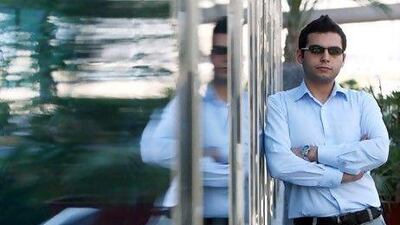Fadel Darwish hopes his business plan is not just viable but perhaps even the best in the world.
The 26-year-old and his three partners recently submitted their plan to a number of global competitions, although winning a prize is not the endgame. The goal, rather, is to fine-tune the idea and its execution based on expert commentary from successful entrepreneurs and venture capitalists who judge the contests.
The seed for their idea sprouted from graduate research looking at how to manage energy and its impact on the environment; specifically, how solid municipal waste could be used in a positive way. The end result: "The machine we're going to manufacture lets you load the waste, and it produces electricity and [energy for both] hot water and - based on new research that came up three months ago - chilled water," says Mr Darwish.
This technology could be used by "many" companies in the UAE. At least that's what Mr Darwish and his partners have argued in business plan competitions that reward winners with some cash, informative workshops or sometimes both. Last year, they came second at an event in Egypt and qualified as finalists for the Technology Entrepreneurship Challenge, which was put on by Intel and the University of California-Berkeley. The contest aims to find the "technologies and teams that can have the greatest impact. Participation gets you, your technology and your institution on to the premier world stage for technology entrepreneurship."
For this competition, the budding businessmen flew to California and argued in front of venture capitalists that their technology could be adopted by many high-density waste producers in Dubai - such as hotels or office towers - as a way to reduce waste at the source and lessen the ecological and logistical burdens associated with disposal.
"All the feedback we've got from them, we've incorporated into our analysis of the business plan," says Mr Darwish, who notes that the topics of regulation and social acceptance of their technology kept cropping up in California as recurring themes. "These were two specific points that were a concern for them," he adds. "That helped us prioritise our analysis. We need to work on that."
This week, Mr Darwish and his partners will be in Lebanon, attending a workshop on business planning held by the Massachusetts Institute of Technology (MIT). It's part of the reward they earned from the MIT Arab Business Plan Competition, after becoming the only group from the UAE to crack the top 30 as semi-finalists, from a record pool of 3,780 applicants from 17 Arab countries.
While Mr Darwish expects the workshop will be similar to another business plan event that he attended in Bahrain last year, he feels the group is getting closer to actually transforming its idea into a sellable product. "We've been approached by some VCs [venture capitalists]," says Mr Darwish. "We want to finish our proof of concept then proceed with finalising the business plan. We expect early next year to be able to manufacture the prototype and start manufacturing."

